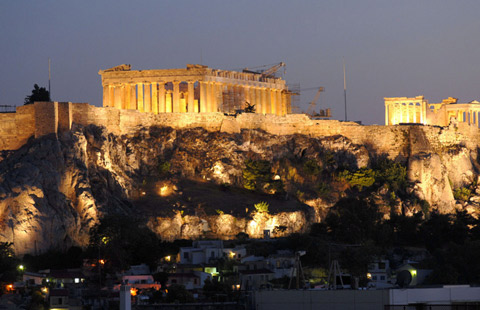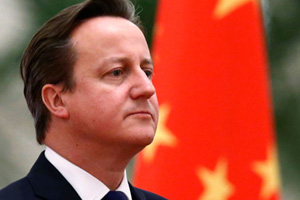
China and Greece offer cultural 'window' between East and West
Comments Print Mail Large Medium Small
3. Your government has ambitious privatization schemes. What is the progress and how about China's involvement? What progress has been made in China's move to buy an airport in Athens and sea port in Piraeus?
Our privatization projects have made a slow start, due to structural rigidities, but now they are gaining momentum. However, we already have a "breakthrough" in the port of Piraeus, where a pioneering investment by the Chinese company Cosco, back in 2009, has already proved a big success.
We are now building on this and trying to expand it further. I believe that the Cosco investment is only the beginning of a strategic Chinese involvement in Greek infrastructure, in the process of opening up a major "European corridor".
A number of privatization schemes that are more mature in Greece today are candidates for the next concrete steps; including railroad projects and even airport hubs.
4. China and Europe pursuing a partnership of peace, growth, reform and civilization. How will China and Greece stand together to achieve this aim?
 The best and most solid way to bring people together is through cultural ties. Classic Greek Civilization has dominated the West for millennia. Chinese culture has dominated the East. So by opening up our cultural relations, we are doing much more than bringing together two distant countries. We are opening up a "window" between East and West. A window of knowledge, a window of appreciation, understanding and respect to "the other side of the world".
The best and most solid way to bring people together is through cultural ties. Classic Greek Civilization has dominated the West for millennia. Chinese culture has dominated the East. So by opening up our cultural relations, we are doing much more than bringing together two distant countries. We are opening up a "window" between East and West. A window of knowledge, a window of appreciation, understanding and respect to "the other side of the world".
I strongly believe that commercial ties between China and Europe – this is actually the "big picture" – should be reshaped in terms of opening up rather than closing down; of lowering barriers rather than raising new ones. And of course, on mutually beneficial terms.
Notice the words I have chosen to describe the strategic aspects of our common prospects: A "gateway" between China and Europe, in terms of international trade; a "European corridor", in terms of investment and long-term economic ties; a "cultural window" between the two oldest and most influential civilizations, in terms of coming together and understanding each other.
The more we find out about each other, the more we understand ourselves. The more we read and discuss about our past, the more we are inspired for our future.
Plato, Aristotle and Thucydides are not only the founding fathers of Greek cultural heritage, they are an integral part of Western civilization. I believe that Confucius, Lao-tse and Sun Tsu, are also an integral part of universal cultural heritage.
The more we find out about each other the more we discover striking similarities, and the more we realize that these unique historical experiences of China and Greece are complementary in nature and universal in their potential.
So we should no longer keep apart two pieces of "treasure" that together could start-up a cultural "chain reaction" of immense dynamics. Let's bring them together creating a "critical mass".
For example, Greek and Chinese are the oldest still-spoken languages in the world. They have evolved and grown on an unprecedented scale. Just come and think about all this cultural wealth imbedded in both of them through the millennia.
So, to get started, I expect and encourage many more Greeks to learn Chinese in the years to come and many more Chinese people to learn Greek.
Both Chinese and Greeks are fast learners. I was amazed by some Chinese speaking the Greek language very fluently. I hear that we already have some Greeks that are fluent in Chinese as well.
There are probably a million things we can do to understand each other better.
So let's get started by doing something truly bold: eliminating the language barrier between us.
Special: Premier Li visits Britain, Greece




